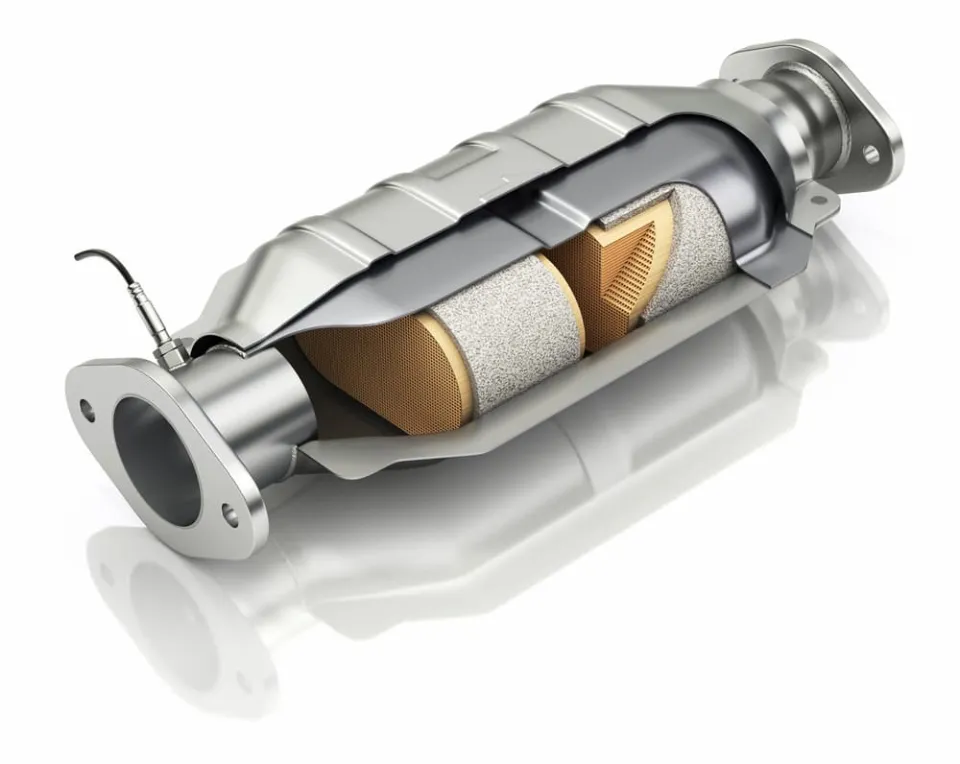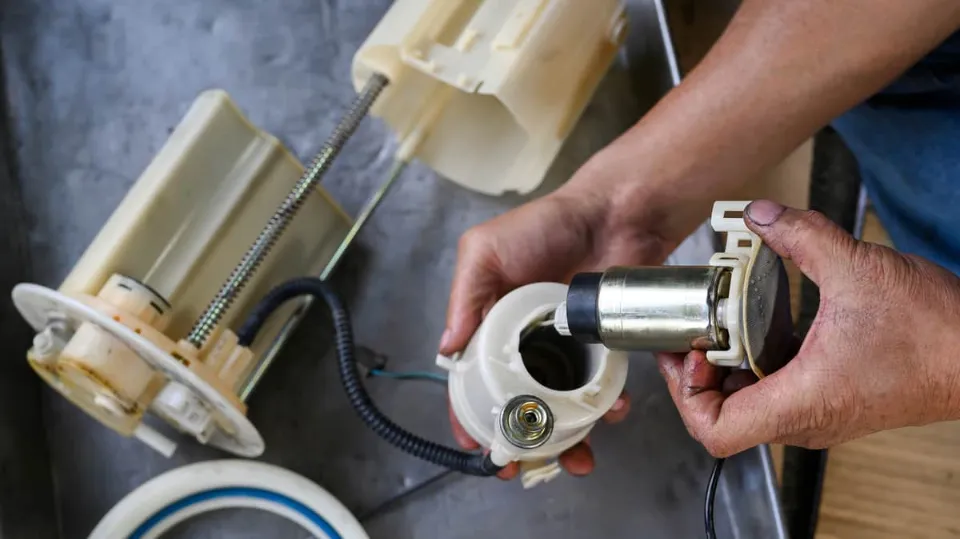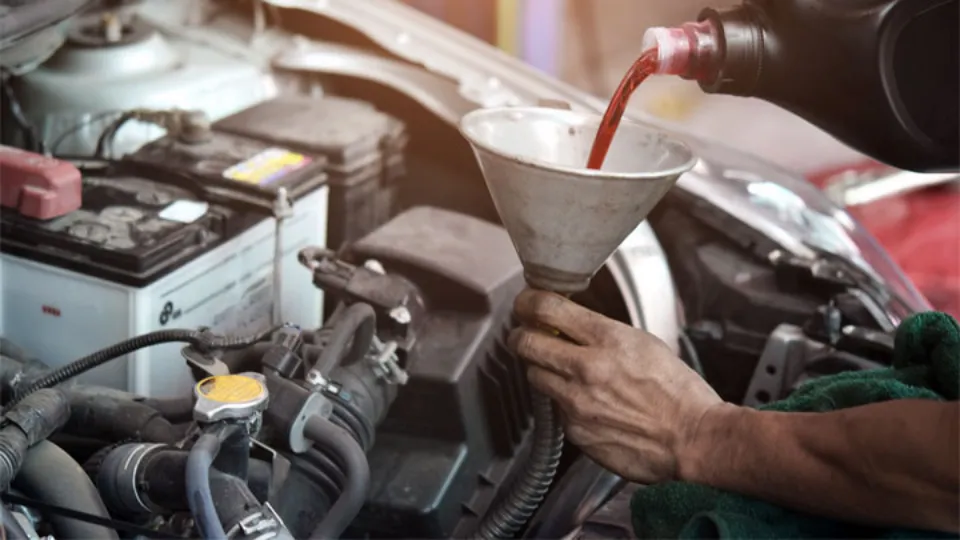There is definitely cause for concern if you ever discover that your car smells like rotten eggs. You should address this specific problem right away because there are several problems connected to this odor. Why do my car smell like rotten eggs? How to deal with it?
Why do my car smell like rotten eggs? Faulty catalytic converter, fuel pressure sensor failure or worn fuel filter, transmission fluid issues, dead animal, or a rotten egg.
Stay with us, and we’ll try to provide a thorough explanation as to what causes it.
Why Does Your Car Smell Like Rotten Eggs?
The sulfur, or hydrogen sulfide, in the gasoline is what’s causing this odd smell. Sulfur dioxide, which has no smell, is typically formed from hydrogen sulfide. But when a component of the car’s fuel or exhaust system malfunctions, it may impede this process and give off a rotten egg odor.
There is no need to be alarmed if the smell only lasts a short while after running the engine at high revs. On the other hand, it is important to investigate a persistent sulfur smell. Here are the top three causes of sulfur odor in cars.
Faulty Catalytic Converter
The catalytic converter, which is part of the vehicle’s emissions system, is the most likely source of a rotten egg odor. Trace amounts of hydrogen sulfide are converted into flavorless sulfur dioxide as gasoline enters the catalytic converter. Its purpose is to reduce harmful emissions by “converting” exhaust gases such as hydrogen sulfide into innocuous gases.
Your car will smell like rotten eggs if your catalytic converter is clogged or broken because it can’t handle sulfur gases properly.
You must replace your catalytic converter if it is the cause of the odor. It is likely that another vehicle component has failed and needs to be repaired if your converter is examined and shows no signs of physical damage.

Read about: Does Car Insurance Cover Catalytic Converter Theft?
Fuel Pressure Sensor Failure Or Worn Fuel Filter
A car’s fuel consumption is managed by the fuel pressure sensor. Unreliable fuel pressure regulators can cause excessive oil to pass through the catalytic converter, clogging it up. When there is too much oil in the system, the catalytic converter can’t completely degrade the engine’s waste products, which causes gases to leak out of the tailpipe along with a rotten egg odor.
Another potential cause of the odor is overheating of the catalytic converter, which is brought on by a buildup of byproducts there.
This problem can be fixed by installing a fresh fuel pressure regulator or fuel filter. Issues with the fuel system, such as increased sulfur deposits burned in the catalytic converter, can be linked to a damaged fuel pressure sensor or a worn-out fuel filter.

Transmission Fluid Issues
A rotten egg smell may come from the fluid in other systems if you skip too many transmission flushes. The issue is typically only present in cars with manual transmissions, and the manufacturer’s recommendation to replace the transmission fluid will usually solve it. However, you must also take care of any leaks that may exist.

Dead Animal
So far, we’ve only discussed mechanical causes, but there are a few more to take into account. For instance, it happens more frequently than you might think that a dead rodent or mouse will end up in your car’s interior, exhaust system, or climate control system.
As the weather gets colder, animals seek out warm places to sleep, and engine compartments and exhaust systems are popular options. They run the risk of being killed when you start your car. Otherwise, their bodies would start to rot. This does not smell good, as one might anticipate. The unpleasant smell that seems to follow your car wherever it goes may have its origins here.

A Rotten Egg
Sometimes, if something smells like a rotten egg, it actually might be one! Despite the slim chance, groceries have been known to escape bags and disappear behind seats. It’s not uncommon for people who are going through a difficult breakup to conceal a cracked egg in a hidden compartment of their ex’s vehicle.
If you ever smell the revolting odor of rotting eggs in your car, it might be the result of a bad egg, milk, broccoli, or other leftover food that you forgot to throw away.

Is It Safe to Drive a Car That Smells Like Rotten Eggs?
Usually, a sulfurous substance that smells like rotten eggs is malfunctioning. That can be harmful. So you shouldn’t drive a car that smells like rotten eggs.
It is simple to assume that if the rotten egg smell is caused by an emissions component, you will be able to continue driving for a considerable amount of time without experiencing it. Even though this might be the case for the majority of vehicles, we strongly advise against it.
If the catalytic converter is blocked, it may overheat and, if it gets hot enough, catch fire. Of course, this is the worst-case scenario, but it should serve as a warning to you not to ignore a rotten-egg smell in your car.
What Should I Do If Other Bad Smells Are Coming from My Car?
Don’t play detective if your car stinks and the smell won’t go away. You run the risk of seriously hurting both yourself and your car if you don’t have the necessary knowledge and tools.
Get your stinky car to a professional as soon as possible. Before the issue becomes more serious, dangerous, or expensive, taking your car to a reliable auto repair shop can help get the issue diagnosed and fixed quickly.

Should You Be Worried About An Egg Smell in Your Car?
When you smell something strange in your car, you should always be concerned because this is a sign that something is wrong. But until you have a mechanic examine your car, you won’t know how serious the issue is.
This is typically a bad sign when it comes to the smell of sulfur or rotten eggs. If your catalytic converter isn’t functioning properly, you and your passengers run a higher risk of breathing in hazardous exhaust byproducts that would typically be converted into less dangerous gases. This condition is typically an indication of a catalytic converter issue.
Summary: Why Do My Car Smell Like Rotten Eggs?
If your car smells like rotten eggs, there may be an issue with the catalytic converter, fuel pressure regulator, fuel filter, or even the old transmission fluid. Whatever the cause, you should take your car to the mechanic as soon as you notice a rotten egg smell inside to get this issue fixed. Before it affects other engine components, the mechanic will identify the malfunctioning component and repair or replace it. This problem may result in your car breaking down in the middle of the road if it is not addressed.





